Looking into the Future. The Profound Impact of Artificial Intelligence on HR and the Evolving Workplace
As technological advancements continue to reshape industries, the impact of artificial intelligence (AI) on Human Resources (HR) and the future of work has become a topic of great significance. AI is revolutionizing the way HR professionals approach talent acquisition, employee engagement, performance management, and even decision-making processes. In this article, we’re going to explore the profound implications of AI in HR and its role in shaping the workplace of the future.
1. Talent Acquisition and Recruitment
AI has significantly transformed the talent acquisition process, making it more efficient and accurate. Recruitment platforms powered by AI algorithms can sift through vast databases of resumes to identify top candidates that match specific job requirements. Moreover, AI-driven chatbots have revolutionized candidate interactions by providing real-time responses to queries, streamlining the hiring process, and enhancing candidate experience.
2. Employee Onboarding and Development
The integration of AI into HR processes has also impacted employee onboarding and development. AI-powered learning platforms can personalize training modules based on individual employee needs, learning preferences, and performance evaluations. This ensures that employees receive relevant and timely training, resulting in a more skilled and productive workforce.
3. Enhanced Employee Experience
AI is playing a vital role in enhancing employee experience by analyzing employee feedback, sentiments, and engagement levels. Sentiment analysis tools can help HR professionals gauge the emotional well-being of employees and address potential issues proactively. AI-driven chatbots and virtual assistants can also provide instant support, enabling employees to get their queries resolved promptly.
4. Performance Management and Feedback
Traditional annual performance reviews are being replaced by continuous performance management systems that leverage AI algorithms. These systems provide real-time feedback to employees, allowing them to track their progress and align their goals with organizational objectives. AI can analyze performance data to identify patterns and suggest performance improvement strategies.
5. Predictive Analytics for HR Decision-Making
AI empowers HR professionals with predictive analytics that aid in strategic decision-making. Through data analysis, AI can identify workforce trends, forecast attrition rates, and determine the best employee retention strategies. HR leaders can leverage these insights to implement proactive policies and improve workforce planning.
6. Ethical Considerations and Data Privacy
While AI brings remarkable benefits to HR, it also raises ethical considerations. The use of AI in candidate selection, for instance, must ensure that biases are eliminated from the algorithms and that the process remains fair and unbiased. Additionally, data privacy is a critical concern when it comes to collecting and utilizing employee data for AI-powered HR processes. HR departments must prioritize data security and ensure compliance with relevant regulations.
The Future of Work: AI-Integrated Workplaces
As AI continues to evolve, it will become even more integral to the future of work. AI-driven automation will streamline routine tasks, allowing employees to focus on higher-value work that requires human creativity and problem-solving skills. Collaborative robots (cobots) will work alongside employees, enhancing productivity and safety in workplaces. Furthermore, remote work will become more efficient, thanks to AI-driven collaboration tools and virtual meeting assistants.
Artificial Intelligence is rapidly transforming HR practices, from recruitment and onboarding to employee engagement and performance management. The effective use of AI can enable HR professionals to make data-driven decisions, personalize employee experiences, and create a more agile and productive workforce. However, organizations must navigate ethical considerations and data privacy issues to ensure that AI is harnessed responsibly and transparently. By embracing AI's potential and adopting a human-centered approach, HR can lead the way in shaping a more technologically advanced and employee-centric future of work.





